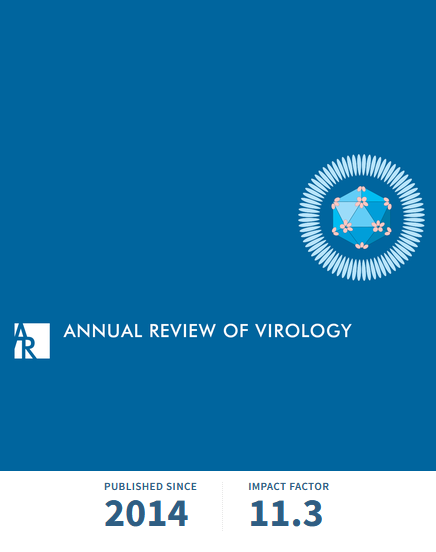SEA-PHAGES 和 SEA-GENES:推进病毒学和科学教育
IF 8.3
1区 医学
Q1 VIROLOGY
引用次数: 0
摘要
为本科生提供研究机会是非常有利的,但在大规模实施过程中会遇到许多挑战。噬菌体种群的巨大多样性和支持性的计划结构为早期职业本科生参与噬菌体发现、基因组学和遗传学研究提供了机会。科学教育联盟(SEA)是一个包容性的研究教育社区(iREC),为从社区学院到研究活跃的大学等机构中没有病毒学经验的学生和教师提供集中的项目支持,让他们参与两个基于课程的项目:SEA-PHAGES(SEA Phage Hunters Advancing Genomic and Evolutionary Science)和 SEA-GENES(SEA Gene-function Exploration by a Network of Emerging Scientists)。自 2008 年以来,SEA 已为 50,000 多名本科生研究人员提供了支持,他们分离出了 23,000 多种噬菌体,其中 4,500 多种已完成测序和注释。学生们对数百个噬菌体基因进行了功能定位,噬菌体的收集也促进了噬菌体在治疗分枝杆菌感染方面的应用。参与 SEA 促进了学生对科学教育的坚持,其包容性促进了更公平的科学界。本文章由计算机程序翻译,如有差异,请以英文原文为准。
SEA-PHAGES and SEA-GENES: Advancing Virology and Science Education
Research opportunities for undergraduate students are strongly advantageous, but implementation at a large scale presents numerous challenges. The enormous diversity of the bacteriophage population and a supportive programmatic structure provide opportunities to engage early-career undergraduates in phage discovery, genomics, and genetics. The Science Education Alliance (SEA) is an inclusive Research-Education Community (iREC) providing centralized programmatic support for students and faculty without prior experience in virology at institutions from community colleges to research-active universities to participate in two course-based projects, SEA-PHAGES (SEA Phage Hunters Advancing Genomic and Evolutionary Science) and SEA-GENES (SEA Gene-function Exploration by a Network of Emerging Scientists). Since 2008, the SEA has supported more than 50,000 undergraduate researchers who have isolated more than 23,000 bacteriophages of which more than 4,500 are fully sequenced and annotated. Students have functionally characterized hundreds of phage genes, and the phage collection has fueled the therapeutic use of phages for treatment of Mycobacterium infections. Participation in the SEA promotes student persistence in science education, and its inclusivity promotes a more equitable scientific community.
求助全文
通过发布文献求助,成功后即可免费获取论文全文。
去求助
来源期刊

Annual Review of Virology
VIROLOGY-
CiteScore
19.40
自引率
0.90%
发文量
28
期刊介绍:
The Annual Review of Virology serves as a conduit for disseminating thrilling advancements in our comprehension of viruses spanning animals, plants, bacteria, archaea, fungi, and protozoa. Its reviews illuminate novel concepts and trajectories in basic virology, elucidating viral disease mechanisms, exploring virus-host interactions, and scrutinizing cellular and immune responses to virus infection. These reviews underscore the exceptional capacity of viruses as potent probes for investigating cellular function.
 求助内容:
求助内容: 应助结果提醒方式:
应助结果提醒方式:


